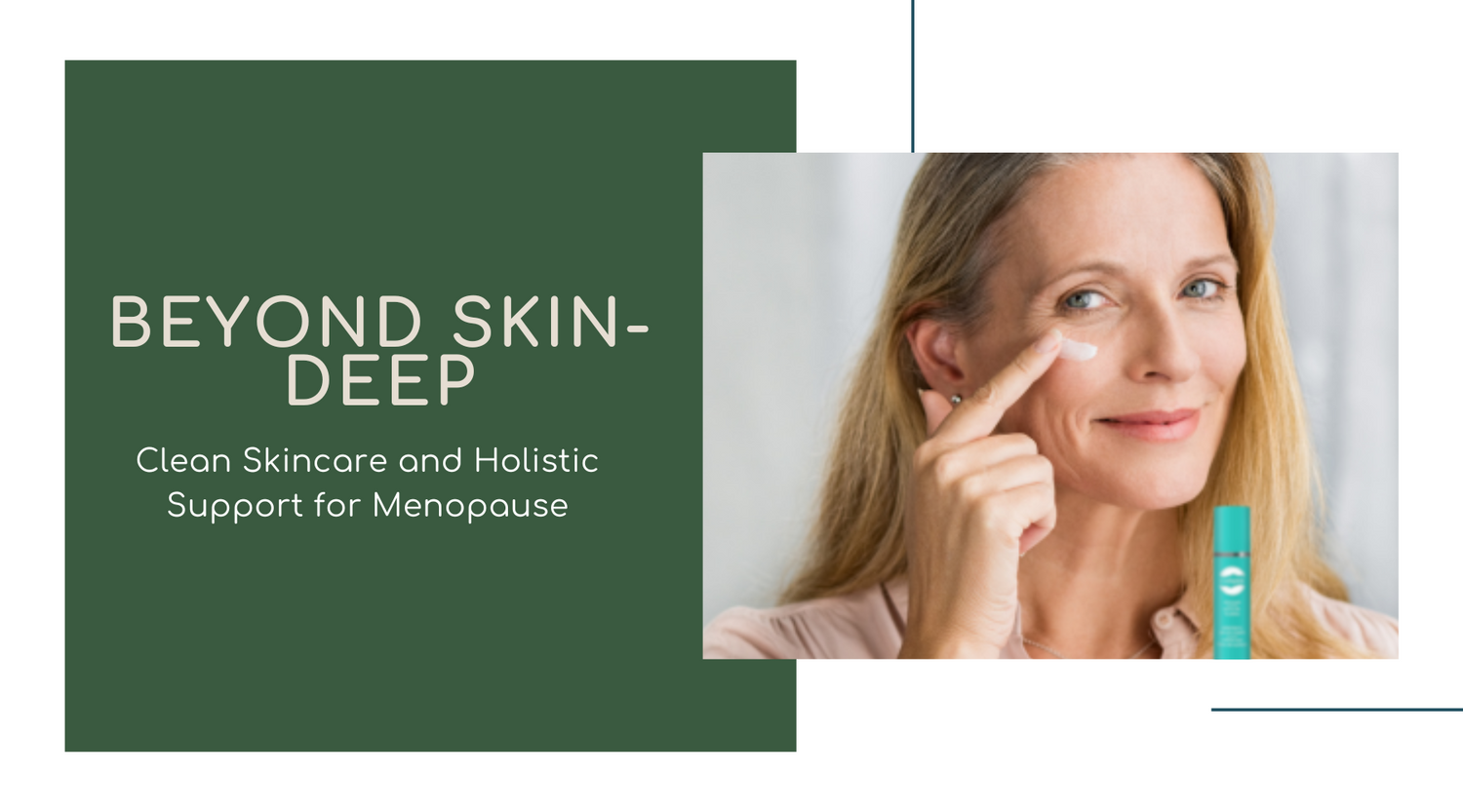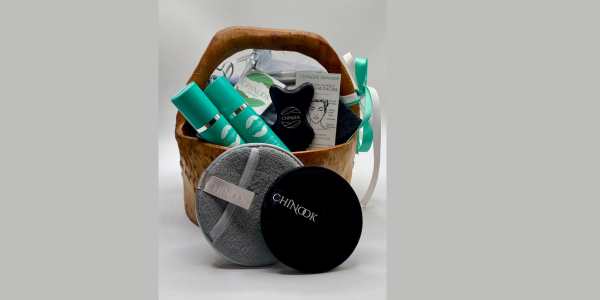
In the world of skincare, natural retinol alternatives have gained significant popularity due to their remarkable ability to brighten the skin without the potential drawbacks associated with retinol. When it comes to enhancing skin radiance, there are several natural ingredients that emerge as exceptional options.
Green tea extract, vitamin C, niacinamide, and alpha hydroxy acids (AHAs) are just a few examples of the top contenders in the realm of natural brightening products.
These organic alternatives not only help to even out skin tone and fade dark spots, but they also offer additional benefits.
To incorporate these natural retinol alternatives into your skincare routine, it is crucial to tailor your approach and product choices to your specific skin type
Click here to learn more about: the chinook skincare collection
Brightening Skin Care Options
In the realm of skincare, there exists a vast array of techniques and products aimed at enhancing the overall radiance and appearance of the skin. A crucial aspect to grasp in this pursuit is the concept of brightening and how it operates, as understanding this is vital in discovering effective solutions for skin rejuvenation.
While the traditional powerhouse ingredient of retinol has long been heralded for its ability to brighten the skin, there are now natural alternatives available that offer comparable benefits without the accompanying drawbacks.
By incorporating these retinol-free skincare options into your routine, you can adopt a gentler and more sustainable approach to achieving a brighter complexion.
Delving into the realm of nature and organic skincare allows you to embrace a whole new realm of brightening alternatives, prioritizing the health and vitality of your skin.
Comparing Natural Retinol Alternatives
Many people seek the anti-aging benefits of retinol but shy away from its potential side effects like dryness and irritation. Thankfully, nature offers several gentler alternatives! But with options like bakuchiol, granactive retinoid, rosehip oil, and more, choosing the right one can feel overwhelming. Let's explore some key differences:
Bakuchiol: This plant-derived gem boasts similar wrinkle-reducing and brightening effects to retinol, but without the irritation. It's perfect for sensitive skin and even shows promise in reducing hyperpigmentation. However, studies on its long-term efficacy are ongoing.
Granactive Retinoid: This newer form of vitamin A offers similar results to retinol but penetrates skin slower, minimizing irritation. However, it's more expensive and requires specific formulations for optimal effectiveness.
Rosehip Oil: Rich in vitamin A and antioxidants, this oil helps brighten skin and reduce fine lines. While not as potent as other alternatives, it's gentle and can be used alongside retinol for added nourishment.
Other Options: Peptides and vitamin C are also players, offering anti-aging benefits like improved firmness and collagen production. But their effectiveness might be less dramatic compared to retinol alternatives.
Ultimately, the "best" alternative depends on your individual needs and preferences. Consider your skin type, budget, and desired results. Research each option thoroughly, consult a dermatologist for personalized advice, and don't hesitate to experiment to find your perfect match for a naturally radiant complexion!
Side Effects of Brightening Natural Skin Care
Brightening natural skin care has gained significant popularity due to its ability to improve skin tone and reduce hyperpigmentation. Many people are turning to this regimen to achieve a healthier and more radiant complexion.
It is important to be aware that like any skincare routine, there can be potential side effects associated with brightening natural skin care. Understanding these side effects and taking necessary precautions to minimize any adverse reactions is crucial for maintaining healthy and natural skin renewal.
When it comes to brightening natural skin care, there are various options to choose from, including natural retinol replacements, non-retinol skincare, and alternative brightening treatments. While these options may offer effective results, it is imperative to be cautious and informed about their potential risks.
This article will explore the possible side effects of brightening natural skin care, shed light on the causes behind them, and provide useful tips for natural retinol replacements, non-retinol skin care, alternative brightening treatments, and natural skin renewal.
Effective Natural Brightening Products
Consumers are increasingly seeking effective natural brightening products that can provide similar results to retinol serum alternatives, without the use of retinol or other synthetic ingredients. This section explores a range of organic and natural skincare options that can effectively even out skin tone and reduce pigmentation.
The importance of choosing natural brightening products over synthetic alternatives is emphasized, highlighting the potential harmful effects of the latter. By delving into key ingredients such as vitamin C, niacinamide, and turmeric, readers can gain a better understanding of their benefits and how to incorporate them into their skincare routine for brightening purposes.
A comprehensive selection of product recommendations is provided, catering to various price points and types of products. In order to help consumers find effective natural brightening products, tips are given on how to read ingredient labels and identify trustworthy brands. This section aims to address common brightening serum alternatives, retinol substitutes, natural brightening solutions, and non-retinol skincare products.
How Brightening Alternatives Rejuvenate Skin
When it comes to rejuvenating the skin and achieving a brighter complexion, there are alternatives to brightening creams that offer natural and effective results. These non-retinol skin treatments provide individuals with a solution beyond traditional options and allow them to explore alternative methods for achieving a radiant and youthful complexion.
By opting for retinol-free creams and other natural alternatives, individuals can experience improved skin tone and texture without the potential side effects associated with retinol.
These brightening alternatives harness the power of natural skincare ingredients known for their brightening properties, providing a safe and gentle approach to skin rejuvenation
Natural Skincare Substitutes for Retinol
With the increasing demand for natural skincare products, individuals are turning to natural skincare substitutes for retinol. These alternatives offer a safer and organic approach to achieve a radiant complexion while avoiding the potential side effects of retinol.
By exploring the benefits of natural skin brightening ingredients and comparing their effectiveness to retinol, individuals can discover retinol-free serums and brightening facial products that deliver impressive results.
Incorporating these alternative retinol treatments into a daily skincare routine can lead to healthier, glowing skin, making them a popular choice among those seeking natural solutions.
Non-Retinol Skin Rejuvenation Options
When it comes to achieving a rejuvenated and brightened complexion, non-retinol skin rejuvenation options provide a safer and healthier alternative to traditional retinol-based skincare products. While retinol may offer benefits in terms of improving skin texture and reducing signs of aging, it also brings along potential risks and side effects.
Many individuals may experience sensitivity or irritation from retinol, which is why it's important to explore non-retinol alternatives that can effectively rejuvenate the skin without any drawbacks.
Fortunately, there are various options available, including brightening lotion options, retinol-free lotions, non-retinol face creams, and alternative brightening remedies. These options cater to different skin concerns such as acne-prone, sensitive, and mature skin, offering a tailored approach to achieving optimal results.
In addition, many of these non-retinol products are brightening lotion options, retinol-free lotions, non-retinol face creams, and alternative brightening remedies.
Retinol-Free Skincare for Brightening
In response to the increasing concerns about retinol's potential side effects and skin sensitivities, retinol-free skincare for brightening has emerged as a popular trend in the beauty industry. People are actively exploring alternatives that can help achieve a brighter complexion without compromising on safety or effectiveness.
One such alternative is natural skin rejuvenation, which involves using alternative skin brighteners that harness the power of various natural ingredients known for their brightening properties. These brightening substitutes, often found in organic skincare products, have gained significant popularity due to their ability to deliver results without relying on retinol.
Plant-based alternatives have proven to be equally effective in providing a safe and healthy route to a brighter complexion. For those seeking to incorporate retinol-free alternatives into their skincare routine, step-by-step guides are readily available to help formulate an effective regimen.
Specific retinol-free alternatives, natural skin rejuvenation, alternative skin brighteners, and brightening serum substitutes are worth exploring for those looking to avoid retinol-based products.
Retinol-Free Brightening Face Creams
In response to the growing demand for natural and organic skincare products, retinol-free brightening face creams have gained significant popularity in recent years. Many individuals are now actively seeking alternative brightening creams that do not contain retinol, as they aim to avoid its potential side effects.
This shift towards retinol-free treatments is driven by the desire for safer and more sustainable skincare options, allowing individuals to explore retinol-free solutions that offer effective and gentle alternatives for achieving a brighter complexion.
By harnessing the power of natural ingredients, such as alternative brightening creams, brightening cream substitutes, and retinol-free treatments, these products cater to the needs of those who prefer a retinol-free approach.
When selecting the appropriate retinol-free brightening face cream, it is crucial to consider factors like skin type, reading product labels, and finding reliable and retinol-free solutions, alternative brightening creams, brightening cream substitutes, and retinol-free treatments.
Alternative Treatments for Brightening Skin
There are various alternative treatments for brightening the skin that are gaining popularity due to their natural ingredients and perceived effectiveness. One option is incorporating vitamin C serums into skincare routines.
Vitamin C is known for its antioxidant properties and ability to brighten the skin by reducing the appearance of dark spots and promoting collagen production. Additionally, using natural ingredients like licorice extract or kojic acid can help to inhibit melanin production, thereby lightening hyperpigmentation and creating a more even complexion.
Another alternative treatment for brightening the skin involves incorporating exfoliating agents such as alpha hydroxy acids (AHAs) or beta hydroxy acids (BHAs). These chemical exfoliants work by sloughing off dead skin cells, revealing fresher, brighter skin underneath.
AHAs like glycolic acid and lactic acid can help to improve skin texture and reduce the appearance of dark spots, while BHAs like salicylic acid are effective at unclogging pores and reducing inflammation, which can contribute to a dull complexion. Regular exfoliation with these ingredients can lead to a smoother and more radiant complexion over time.
Revitalize Your Skin: Enhance Elasticity with Clean Beauty
Revolutionize Your Anti-Aging Routine with Retinol Alternatives





